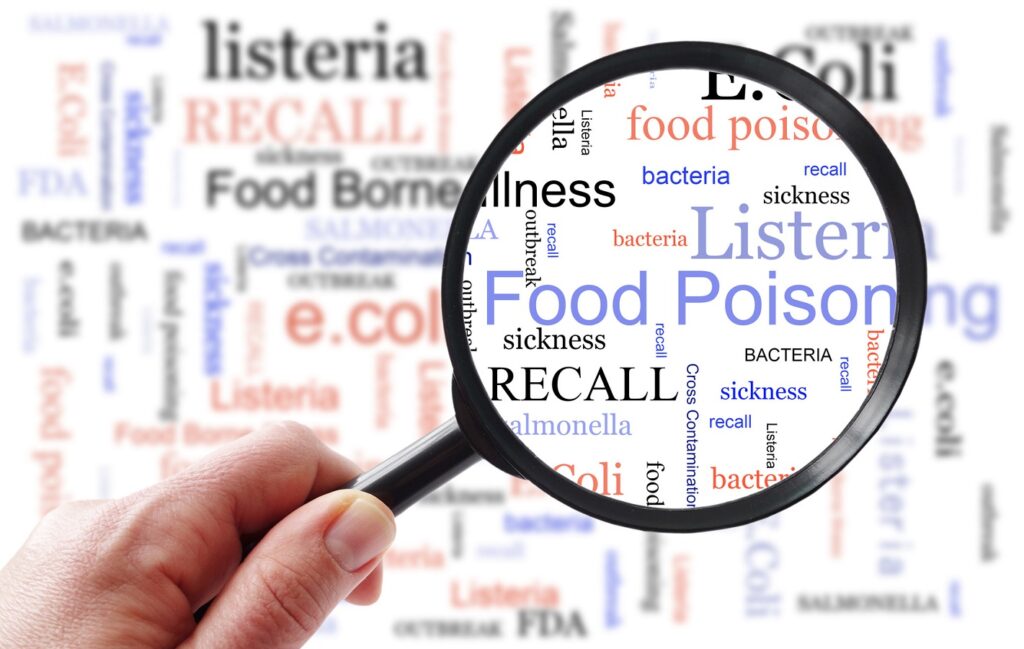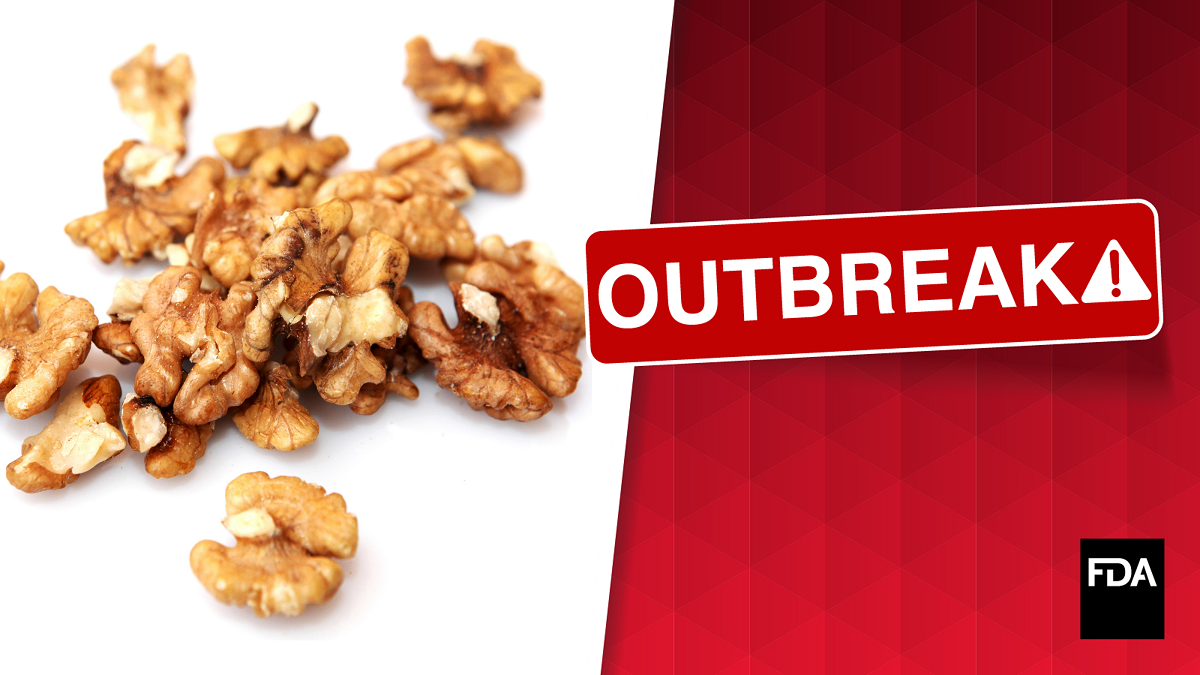The FDA and CDC, state and local partners, are investigating illnesses in a multistate outbreak of E. coli O157:H7 infections linked to organic walnuts from Gibson Farms, Inc. of Hollister, California that were distributed to multiple natural food and co-op stores in AK, AR, AZ, CA, CO, HI, ID, KS, LA, MT, NE, NM, NV, OR, SD, TX, UT, WA, and WY. Ten people were interviewed about the foods they ate the week before becoming ill. Of the ten interviewed, all 10 (100%) reported eating walnuts, and almost all reported buying organic walnuts from bulk bins in food co-ops or natural food stores. On April 27, 2024, Gibson Farms, Inc. initiated a voluntary recall and contacted their distributing customers. Distributors and retailers that may have received recalled bulk organic walnuts should follow the recommendations above and contact their customers. @ https://www.fda.gov/food/outbreaks-foodborne-illness/outbreak-investigation-e-coli-o157h7-bulk-organic-walnuts-april-2024?utm_medium=email&utm_source=govdelivery



